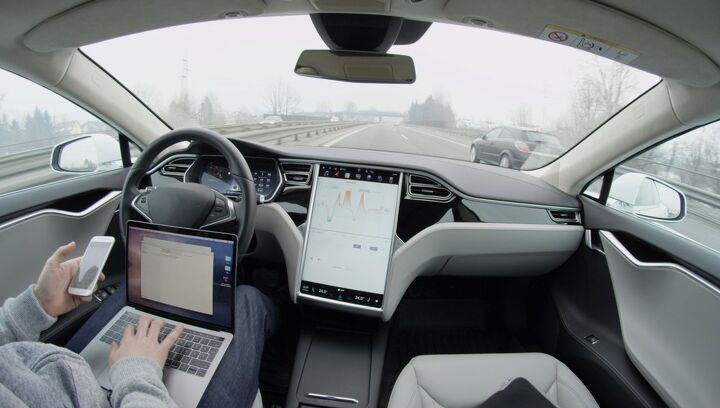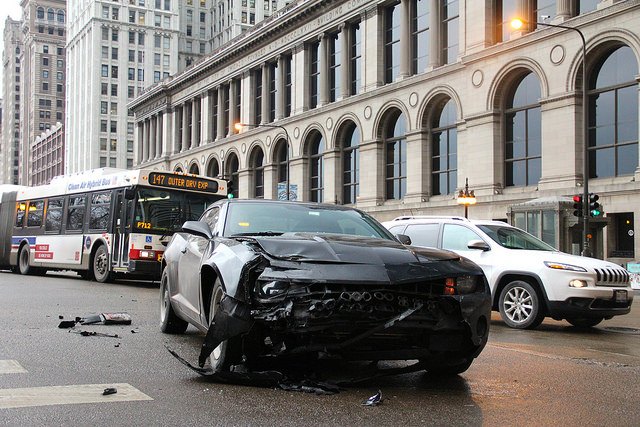#ConsumerProtection
Tesla Removes Full Self Driving Beta Over 'Issues'
Tesla Inc. pulled its Full Self Driving (FSD) beta off the table over the weekend, with CEO Elon Musk stating that testers had been “seeing some issues with [version] 10.3.”
To remedy the issue, the company has reverted back to FSD 10.2 temporarily. Musk made the announcement over social media on Sunday morning. The following day, he had already promised that version 10.3.1 would be coming out to address problems encountered during the exceptionally short public testing phase.
“Please note, this is to be expected with beta software,” the CEO noted. “It is impossible to test all hardware configs in all conditions with internal QA, hence public beta.”
Opinion: Tesla's Full-Self Driving Beta Is a Bad Joke
Earlier this week, Elon Musk announced that Tesla would begin offering the Full Self-Driving (FSD) Beta to testers that had achieved sufficiently high marks in its new “safety score.” While company has repeatedly promised to launch FSD in earnest, which costs $10,000 to purchase or $199 a month to rent (depending on which version of Autopilot you’re using), the system has been habitually delayed from getting a widespread release. This has upset more than a few customers operating under the assumption that having bought into the service actually meant something.
That said, the rollout has technically begun and continues encompassing more users. But regulators are annoyed that the company is now testing FSD’s functionality on thousands of paying customers and the terms in which Tesla is offering FSD has changed in a manner that makes your author extremely uncomfortable. The automaker originally intended to provide the system via a simple over-the-air (OTA) update as availability expanded. However Tesla now has a button allowing drivers to request FSD by opening them up to a period of scrutiny where their driving is digitally judged. Despite your having already shelled out cash for it, access to the beta is determined by the manufacturer’s safety score.
Driving Dystopia: German Automakers Keep Reimagining Vehicle 'Ownership'
Volkswagen recently announced that it plans on making massive amounts of money by introducing more vehicles with over-the-air updates (OTAs), many of which will be able to store and transfer personal profiles so that users can effectively just rent their vehicles for eternity. Additionally, VW has suggested future models will have ability to lock features (that have already been physically installed) behind a paywall that users can unlock via subscription services — things like heated seats, satellite navigation, or even the vehicles top speed.
“In the future, our customers will buy, lease, share or rent cars just for a weekend, and we can use software to provide them with whatever they need over the air,” VW brand’s sales chief Klaus Zellmer said during an online presentation held on Tuesday. “The ID family has been designed for further development, with OTA updates to improve the software’s performance and tailor it to our customers’ needs.”
Driving Dystopia: Tesla Activates Driver Monitoring Protocols
There’s a small camera just above the rear-view mirrors installed in newer Tesla models. If you haven’t noticed it before, it wasn’t of any particular relevance. But it certainly is now.
Tesla has decided to activate driver monitoring protocols in an effort to avoid liabilities whenever Autopilot fails and motorists unexpectedly find themselves merging off a bridge. After rummaging through the wreckage and collecting errant body parts, investigators can use the vehicle’s camera data to see what was happening moments before the car hurled itself into the ravine. If it turns out that the driver was totally alert and did their utmost to wrangle the vehicle as it went haywire, a colossal payout for the surviving family is assured. But if that camera catches them slipping for a microsecond, the manufacturer has all it needs to shift the blame onto the deceased driver.
Report: The Government Is Already Using Connected Cars to Spy on You
A recent report from The Intercept has confirmed some of our biggest fears about connected vehicles. Apparently, U.S. Customs And Border Protection (CBP) has struck a deal with Swedish mobile forensics and data extraction firm MSAB for hardware that allows the government to not only siphon up vehicle data but also use it as a backdoor to access the information on your phone.
While this shouldn’t be all that surprising in an America that’s seen the Patriot Act pave the way for all sorts of government spying, the arrangement represents another item in a toolbox that’s frequently used against regular citizens. CBP is alleged to have spent $456,073 on a series of vehicle forensic kits manufactured inside the United States by Berla. Internal documents suggest that the system was unique and of great interest to the U.S. government, with a multitude of potential applications pertaining to automotive data. But what surprised us was just how much information carmakers thought their products needed to keep tabs on and how that plays into this.
Hide Your Kicks, Hide Your Wife: Nissan's Credit Branch in Hot Water Over Illegal Repossessions
Nissan’s credit arm landed in some big trouble this week. It turned out that there are literally some rules around repossessing a car from a consumer. Apparently Nissan Motor Acceptance Corp. didn’t read those rules, and now they’ll have to pony up.
Tesla Clearly Confused About Secondhand Vehicle Sales
Last month we covered an alarming trend where Tesla appeared to be intentionally removing features from vehicles as they entered the secondhand market. Used automobiles are typically sold with their original equipment intact. The previous owner may have wanted to yank out the tape deck or remove the fuzzy steering wheel cover before handing it over, but these are things you probably negotiated before any money changed hands. Unfortunately, things have only grown more complicated in the (post)modern era.
Reports have rolled in of Tesla stripping cars of thousands of dollars worth of features (mainly Autopilot and Ludicrous Mode) simply because they’re in line for a new owner. This sets an ugly precedent for the industry and undermines the time-honored tradition of the private sale. However, there seems to be some amount of confusion surrounding the company’s official policy and its behavior.
A Buyer's Dismay: Tesla Reportedly Removes Features From Used Model S
I’m a broken record when it comes to consumer protections. Environmentalism may be more fashionable but the green movement has already amassed a sizable army in the current year. Someone needs to be watching out for Joe Customer because companies are stepping up their game. While we’ve often focused on data privacy, right-to-repair laws, and the hidden perils of subscription services, ownership rights also deserve a bit of attention because they’re all sort of interconnected.
As products become increasingly digital, it’s becoming fuzzy as to who actually owns something. In previous decades, someone wanting to outfit their computer with the latest software meant they had to go out and buy it. Now you can simply download stuff over wifi, with no need to have the physical copy cluttering up your desk. But this convenience factor has ramifications. A subset of the video-game community is up in arms over backwards compatibility and the ability to truly own their purchases. With games and movies beginning to occupy internal storage almost exclusively, they’ve grown concerned that companies will attempt to force them to repurchase old games on new platforms to turn a quick buck.
Why is this being explained to you on a car website? Because the automotive industry may be about to engage in similar practices. Jalopnik recently published an account of a man buying a secondhand Tesla Model S, only to see it stripped of thousands of dollars in features.
Them's the Brakes: Ex-NHTSA Administrator, Consumer Groups Sue NHTSA
Automatic emergency braking (AEB) should be mandatory, not voluntary, say safety groups, some of which have sued in order to see it happen.
It’s something of an odd situation, as one of the people behind a lawsuit filed against the National Highway Transportation Safety Administration is an ex-NHTSA administrator.
CA Court Rules CarMax Inspection Checklist Isn't What You Think It Is
When is a completed inspection report not a completed inspection report? When it’s issued by CarMax, a California appeals court has ruled.
The court found the country’s largest used vehicle retailer in violation of a state law requiring detailed inspection checklists for certified used vehicles, Automotive News reports. The ruling, which stems from a lawsuit filed by a customer who claimed CarMax sold him a “certified” lemon, shines light on the retailer’s dodgy vehicle inspection practices.
No Fixed Abode: The 1955 Auto-Buying Experience Is Available To You In 2016, But You Won't Like It
It was called The Automobile Information Disclosure Act of 1958 and it was sponsored by Almer Stillwell Monroney, the Senator from Oklahoma who preferred the colloquial nickname “Mike” and whose other legislative priority in 1958 was to create the FAA.
We owe Mike Monroney a lot. He was from that long-discredited and long-forgotten breed of old privileged men who believed there was such a thing as the public interest and that they had a genuine duty to act in that public interest. As with Rudolf Diesel, history has paid him the supreme compliment of omitting capitalization — it’s common for “monroney” to be used in correspondence or business as a mere noun denoting the window sticker in a new car.
We take the monroney for granted nowadays. There are few of us left alive who can remember the days when a car did not have its price and equipment fully and forthrightly glued to the inside of its rear passenger window. In fact, very few of us take the window sticker at all seriously. Everybody knows that in the modern car market the dealer invoice is the “real” sticker, unless you’re talking about a Ferrari or something where the MSRP is just a starting point for further discussions based on one’s history with the marque, the dealership, and/or Goldman Sachs. But the protection and information offered by that label in the window is real, it is meaningful, and it is absolutely critical to any remotely ethical business transaction between the dealer and the consumer.
Volkswagen's Diesel Fix Actually Makes Emissions Worse, Consumer Group Claims
A software fix designed to bring sidelined 2.0-liter diesel Volkswagen models into compliance just made the vehicle dirtier, a European consumer group claims.
According to Reuters, the Italian consumer group Altroconsumo tested an Audi Q5 that underwent Volkswagen’s technical fix, only to find that nitrous oxide emissions were 25 percent higher than before.
Obama: Dealer Finance Must Be Regulated
President Obama has weighed in on a crucial matter facing legislators attempting to overhaul America’s financial system: whether or not auto dealer finance should be subject to regulation by the new Consumer Protection Agency. Unsurprisingly, he has come down on the side of regulation, specifically echoing concerns voiced earlier by the Pentagon. The National Automobile Dealers Association has vowed to fight attempts to regulate dealer finance.
Statement by President Obama on Financial Reform
Throughout the debate on Wall Street reform, I have urged members of the Senate to fight the efforts of special interests and their lobbyists to weaken consumer protections. An amendment that the Senate will soon consider would do exactly that, undermining strong consumer protections with a special loophole for auto dealer-lenders. This amendment would carve out a special exemption for these lenders that would allow them to inflate rates, insert hidden fees into the fine print of paperwork, and include expensive add-ons that catch purchasers by surprise. This amendment guts provisions that empower consumers with clear information that allows them to make the financial decisions that work best for them and simply encourages misleading sales tactics that hurt American consumers. Unfortunately, countless families – particularly military families – have been the target of these deceptive practices.



























Recent Comments